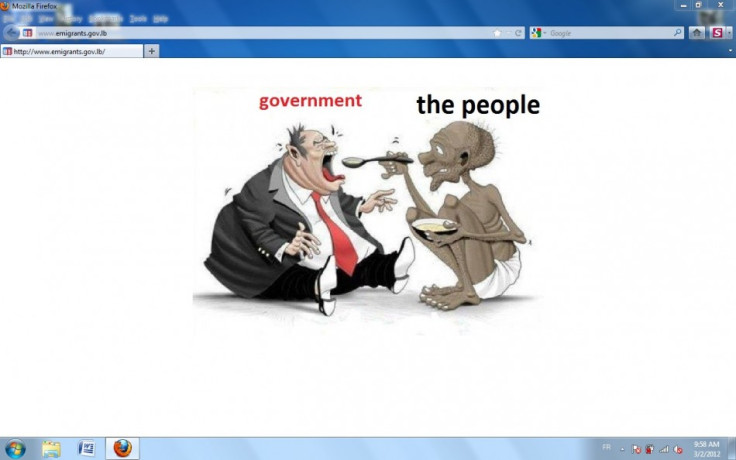Hackers 'Raise Your Voice' Deface Lebanon Government Websites

Hackers belonging to a group called "Raise Your Voice" have attacked several of Lebanon's government-related websites to ask for better living conditions.
Following a similar assault staged by Anonymous collective in March, the hacktivists have defaced the homepages of the Lebanese Ministry of Foreign affairs, Justice and Energy and replaced them with a message which calls for a popular movement of protest.
"We are RYV, short for Raise Your Voice, and we are simply a group of people who could not bear sitting in silence, watching all the crimes and injustice going on in Lebanon," reads the message. "We will not be silenced and brainwashed by your media. We will not stop until the Lebanese people mobilize, demand their rights, and earn them."
"We will not stop until the standards of living are raised to where they should be in Lebanon," it continues. "We will not stop until this government's self-made problems are solved, like the power shortage, water shortage, rise in gas prices and rise in food product prices. We are RYV, expect us to break the silence, whether in the streets or on the Internet. Silence is a crime."
Anonymous defaced four websites of the Lebanon government in March in an act of apparent solidarity with protests staged in Beirut calling for a secular government.
The campaign, dubbed Operation Lebanon, was launched by hacking group LebAnonLulz on Twitter: "TWO of the FOUR defaced websites were mirrored! Mirrors are still on hold and awaiting to be verified. Mirrors shared soon. STAY TUNED."
The attack is allegedly linked to the protests that took place in Beirut when 400 people rallied to call for social justice, reforms and to revive the anti-sectarian movement that began two years ago.
Members of a civil rights collective claimed it was the beginning of a series of actions and demonstrations. Among the protesters' demands were improved utilities, transport, education, rent controls, wages and women's rights.
Lebanon's power-sharing system requires that the president be a Maronite Christian, the prime minister a Sunni Muslim and the parliamentary speaker a Shiite Muslim. Each religious group represents about one-third of Lebanon's population
In April 2010 around 5,000 people marched in Beirut to demand an end to the sectarian system. In March 2011 the movement saw its biggest demonstration with 20,000 people marching across the capital.
For further news on Anonymous's recent activities, check out the IBTimes UK Cyber Warfare section.
© Copyright IBTimes 2024. All rights reserved.






